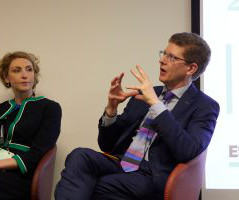UK Stewardship Code to Benefit from Fine-tuning
Chris Hall
MARCH 4, 2024
A review of the UK Stewardship Code 2020 should prompt evolution rather than revolution, according to industry experts, who want to see refinement aimed at further improving outcomes. But some have queried the extent of the code’s effectiveness so far.


















Let's personalize your content